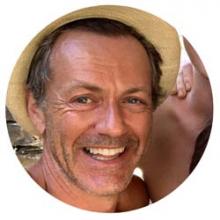
- Faculty of Arts
I am an anthropologist and linguist, and an Associate Professor at the University of British Columbia. I am cross appointed between the Institute for Critical Indigenous Studies and the Department of Anthropology. From 2014 to 2018, I served as Chair of the First Nations and Endangered Languages Program and from 2016 to 2018, as Acting Co Director of the Universitys new Institute for Critical Indigenous Studies. My research focuses on language reclamation, revitalization, documentation and conservation; language mapping, policies, politics and language rights; orality, archives, digital tools and technology. Indigenous methodologies and decolonial practice inform and shape my teaching and research. For over twenty years, my regional focus has been the Himalayan region (particularly Nepal, Sikkim and Bhutan), and more recently, the Pacific Northwest. I am very fortunate to have had the opportunity to work in collaborative partnership with members of the Thangmi speaking communities of eastern Nepal and Darjeeling district in India since 1996, and since 2015 with members of the Heiltsuk First Nation through a Language and Culture Mobilization Partnership in which UBC is a founding member. I direct two international research initiatives, Digital Himalaya and the World Oral Literature Project, and I edit the Oral Literature Series with the Open Book Publishers. I am also the principal investigator for the Relational Lexicography project through which we are developing a framework and toolkit for collaborative, community informed dictionary work with marginalized languages. I have had the privilege to design and present two BBC Radio series on language endangerment and policy: Our Language in Your Hands in 2012 and On Language Location in 2014. Both are freely available online. I write about language policy, linguistic rights, digital technologies, cultural heritage and mother tongue instruction. As a firm advocate of collaborative research, I am committed to widening public engagement with anthropology and linguistics. My office and home are located on the traditional, ancestral, unceded territory of the hən̓q̓əmin̓əm̓ speaking Musqueam people. I am grateful for their teachings.